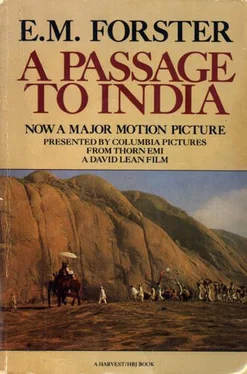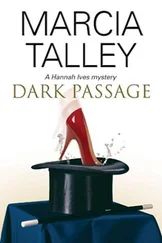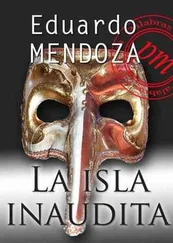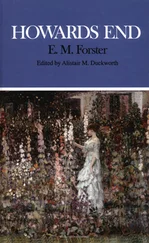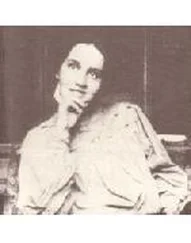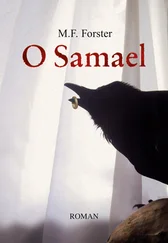Aziz had not gone to the Bridge Party. Immediately after his meeting with Mrs. Moore he was diverted to other matters. Several surgical cases came in, and kept him busy. He ceased to be either outcaste or poet, and became the medical student, very gay, and full of details of operations which he poured into the shrinking ears of his friends. His profession fascinated him at times, but he required it to be exciting, and it was his hand, not his mind, that was scientific. The knife he loved and used skilfully, and he also liked pumping in the latest serums. But the boredom of rйgime and hygiene repelled him, and after inoculating a man for enteric, he would go away and drink unfiltered water himself. "What can you expect from the fellow?" said dour Major Callendar. "No grits, no guts." But in his heart he knew that if Aziz and not he had operated last year on Mrs. Graysford's appendix, the old lady would probably have lived. And this did not dispose him any better towards his subordinate.
There was a row the morning after the mosque—they were always having rows. The Major, who had been up half the night, wanted damn well to know why Aziz had not come promptly when summoned.
"Sir, excuse me, I did. I mounted my bike, and it bust in front of the Cow Hospital. So I had to find a tonga."
"Bust in front of the Cow Hospital, did it? And how did you come to be there?"
"I beg your pardon?"
"Oh Lord, oh Lord! When I live here "—he kicked the gravel—" and you live there—not ten minutes from me—and the Cow Hospital is right ever so far away the other side of you— there —then how did you come to be passing the Cow Hospital on the way to me? Now do some work for a change."
He strode away in a temper, without waiting for the excuse, which as far as it went was a sound one: the Cow Hospital was in a straight line between Hamidullah's house and his own, so Aziz had naturally passed it. He never realized that the educated Indians visited one another constantly, and were weaving, however painfully, a new social fabric. Caste "or something of the sort" would prevent them. He only knew that no one ever told him the truth, although he had been in the country for twenty years.
Aziz watched him go with amusement. When his spirits were up he felt that the English are a comic institution, and he enjoyed being misunderstood by them. But it was an amusement of the emotions and nerves, which an accident or the passage of time might destroy; it was apart from the fundamental gaiety that he reached when he was with those whom he trusted. A disobliging simile involving Mrs. Callendar occurred to his fancy. "I must tell that to Mahmoud Ali, it'll make him laugh," he thought. Then he got to work. He was competent and indispensable, and he knew it. The simile passed from his mind while he exercised his professional skill.
During these pleasant and busy days, he heard vaguely that the Collector was giving a party, and that the Nawab Bahadur said everyone ought to go to it. His fellowassistant, Doctor Panna Lal, was in ecstasies at the prospect, and was urgent that they should attend it together in his new tum-tum. The arrangement suited them both. Aziz was spared the indignity of a bicycle or the expense of hiring, while Dr. Panna Lal, who was timid and elderly, secured someone who could manage his horse. He could manage it himself, but only just, and he was afraid of the motors and of the unknown turn into the club grounds. "Disaster may come," he said politely, "but we shall at all events get there safe, even if we do not get back." And with more logic: "It will, I think, create a good impression should two doctors arrive at the same time."
But when the time came, Aziz was seized with a revulsion, and determined not to go. For one thing his spell of work, lately concluded, left him independent and healthy. For another, the day chanced to fall on the anniversary of his wife's death. She had died soon after he had fallen in love with her; he had not loved her at first. Touched by Western feeling, he disliked union with a woman whom he had never seen; moreover, when he did see her, she disappointed him, and he begat his first child in mere animality. The change began after its birth. He was won by her love for him, by a loyalty that implied something more than submission, and by her efforts to educate herself against that lifting of the purdah that would come in the next generation if not in theirs. She was intelligent, yet had old-fashioned grace. Gradually he lost the feeling that his relatives had chosen wrongly for him. Sensuous enjoyment—well, even if he had had it, it would have dulled in a year, and he had gained something instead, which seemed to increase the longer they lived together. She became the mother of a son… and in giving him a second son she died. Then he realized what he had lost, and that no woman could ever take her place; a friend would come nearer to her than another woman. She had gone, there was no one like her, and what is that uniqueness but love? He amused himself, he forgot her at times: but at other times he felt that she had sent all the beauty and joy of the world into Paradise, and he meditated suicide. Would he meet her beyond the tomb? Is there such a meetingplace? Though orthodox, he did not know. God's unity was indubitable and indubitably announced, but on all other points he wavered like the average Christian; his belief in the life to come would pale to a hope, vanish, reappear, all in a single sentence or a dozen heart-beats, so that the corpuscles of his blood rather than he seemed to decide which opinion he should hold, and for how long. It was so with all his opinions. Nothing stayed, nothing passed that did not return; the circulation was ceaseless and kept him young, and he mourned his wife the more sincerely because he mourned her seldom.
It would have been simpler to tell Dr. Lal that he had changed his mind about the party, but until the last minute he did not know that he had changed it; indeed, he didn't change it, it changed itself. Unconquerable aversion welled. Mrs. Callendar, Mrs. Lesley—no, he couldn't stand them in his sorrow: they would guess it—for he dowered the British matron with strange insight—and would delight in torturing him, they would mock him to their husbands. When he should have been ready, he stood at the Post Office, writing a telegram to his children, and found on his return that Dr. Lal had called for him, and gone on. Well, let him go on, as befitted the coarseness of his nature. For his own part, he would commune with the dead.
And unlocking a drawer, he took out his wife's photograph. He gazed at it, and tears spouted from his eyes. He thought, "How unhappy I am!" But because he really was unhappy, another emotion soon mingled with his self-pity: he desired to remember his wife and could not. Why could he remember people whom he did not love? They were always so vivid to him, whereas the more he looked at this photograph, the less he saw. She had eluded him thus, ever since they had carried her to her tomb. He had known that she would pass from his hands and eyes, but had thought she could live in his mind, not realizing that the very fact that we have loved the dead increases their unreality, and that the more passionately we invoke them the further they recede. A piece of brown cardboard and three children—that was all that was left of his wife. It was unbearable, and he thought again, "How unhappy I am!" and became happier. He had breathed for an instant the mortal air that surrounds Orientals and all men, and he drew back from it with a gasp, for he was young. "Never, never shall I get over this," he told himself. "Most certainly my career is a failure, and my sons will be badly brought up." Since it was certain, he strove to avert it, and looked at some notes he had made on a case at the hospital. Perhaps some day a rich person might require this particular operation, and he gain a large sum. The notes interesting him on their own account, he locked the photograph up again. Its moment was over, and he did not think about his wife any more.
Читать дальше
